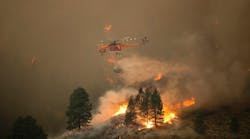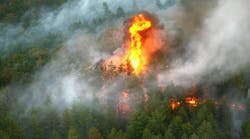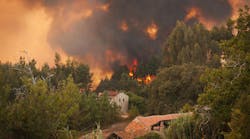Last month I attended the International Society of Arboriculture conference in Toronto. In late April I was at the Arboriculture Australia conference. These struck me as the recurring themes: storm damage; storm restoration; the effect of storms on VM programs; the effect of storms on the organization; wildfires (called bushfires down under) and wildfire liability.
Before the courts of law and the courts of public opinion, utilities are failing to live up to their social contracts. Politicians, regulators and the public don’t believe utilities are doing enough to avoid storm damage; have adequate restoration procedures and believe they should be held accountable for all losses arising from power line initiated wildfires.
The financial burden of these beliefs on utilities and their contractors is enormous. And the weight of public opinion is so great that key utility executives have had to resign their positions. I don’t believe it’s going to get better. My reason for saying so is that utilities are generally the defendant having to justify their actions after the fact. In a court of law a good defense may win but in the court of public opinion, the defendant has already lost, if not wholly, certainly substantially. When it comes to wildfire cases, whether via the courts or in settlements, utilities and their contactors are losers on a grand scale.
It must be conceded that utilities sell and deliver a hazardous product. That’s why it’s conveyed 30 feet or more above the ground. Regardless, the demand for this product and service is not only high but unyielding, as evidenced by acrimonious grousing that follows any major storm. In light of this uncompromising demand and given that the risks of electrocution, fires and to continuity of supply are or should be generally recognized, how is it that the consumer shoulders none of the responsibility when any of these risks are realized. The social contract is skewed and seriously flawed.
Society seems to view electrical service as so essential that it should be entitled to its benefits on a continuous basis. The risks to and associated with that service cannot be addressed without public participation. But the role of the public seriously limits the ability of utilities to minimize the risks. In the aftermath of a major storm the topic of undergrounding usually arises. No doubt in many cases, doing so would dramatically reduce future storm damage and consequently positively impact customer experience. However, without a public willingness to accept the associated costs both the regulators and the utilities have their hands tied.
For areas that are not subject to being inundated by a storm surge, the major factor in storm damage arises from the failure of adjacent trees. Yet, when the utility wishes to remove branches overhanging conductors because that would materially reduce the number of service interruptions during ice or wet snow storms, the public often opposes the action for aesthetic reasons.
It brings to mind the 2002 ice storm in North Carolina. A particular Raleigh community suffered the greatest damage and endured the longest service interruption. This was a community that had rallied against Duke Power’s standards regarding overhang clearances. After rounds of community meetings Duke had conceded to a substantial lowering of their clearance standard. Yet in demanding an explanation for the extensive damage and lengthy outage, with the effects of the altered standard literally littering the streets, the spokeswoman for the community group that had led the fight to soften the clearance standard said something to the effect of “don’t tell us it’s because of the amended tree trimming standard.” She would only entertain explanations that placed the blame on Duke Power.
Given the public role in limiting the methodology and extent to which utilities may address the risks associated with an overhead electrical system, we have a societal issue. As such, it is simply not right that the utilities be held fully and solely financially accountable for losses arising from the foreseeable realization of those risks.
Next month we’ll explore how we might arrive at a general recognition that the realization of the risks associated with electrical are not simply a utility issue but a societal issue.


